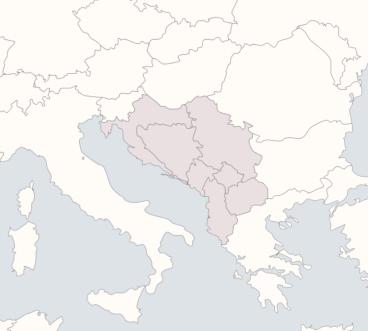Albania

Cardin, Shaheen, Wicker Introduce New Bipartisan Bil...
Aug 04, 2022WASHINGTON – Helsinki Commission Chairman Ben Cardin (MD) with Jeanne Shaheen (D-N.H.), Chair of the Senate Foreign Relations Subcommittee on Europe and Regional Security Cooperation and member of the Helsinki […]
Sweden’s Leadership of the OSCE
Jun 11, 2021In 2021, Sweden chairs the world’s largest regional security organization—the Organization for Security and Cooperation in Europe (OSCE)—which comprises 57 participating States stretching from North America, across Europe, and to […]
Swedish Foreign Minister Ann Linde to Appear at Hels...
Jun 03, 2021WASHINGTON—The Commission on Security and Cooperation in Europe, also known as the Helsinki Commission, today announced the following online hearing: SWEDEN’S LEADERSHIP OF THE OSCE Priorities for 2021 Friday, June […]

Helsinki Commission Commemorates 45 Years of Advanci...
Jun 03, 2021WASHINGTON—To commemorate the 45th anniversary of the Commission on Security and Cooperation in Europe, also known as the U.S. Helsinki Commission, on June 3, Chairman Sen. Ben Cardin (MD) and […]
OSCE Ministerial Council Appoints Top Leaders, Adopt...
Dec 21, 2020By Shannon Simrell, Representative of the Helsinki Commission to the U.S. Mission to the OSCE Foreign ministers of the 57 OSCE participating States convened on December 3 – 4, 2020, […]

Albania’s Chairmanship of the OSCE
Sep 17, 2020In 2020, the Organization for Security and Cooperation in Europe (OSCE) has faced the unprecedented challenge of a global pandemic while many participating States struggle—or fail—to live up to their […]

Albanian Prime Minister Edi Rama to Appear at Helsin...
Sep 09, 2020WASHINGTON—The Commission on Security and Cooperation in Europe, also known as the Helsinki Commission, today announced the following online hearing: ALBANIA’S CHAIRMANSHIP OF THE OSCE Responding to the Multiple Challenges […]
Albania’s Leadership in Europe
Dec 11, 2019Each year, one participating State of the Organization for Security and Cooperation in Europe (OSCE) is selected by the others to chair the 57-member organization. Since the role of OSCE […]
Helsinki Commission Briefing to Provide Parliamentar...
Dec 05, 2019WASHINGTON—The Commission on Security and Cooperation in Europe, also known as the Helsinki Commission, today announced the following staff-led briefing: ALBANIA’S LEADERSHIP IN EUROPE Parliamentary Perspectives of the Albanian OSCE […]

2019 Human Dimension Implementation Meeting
Sep 13, 2019From September 16 to September 27, OSCE participating States will meet in Warsaw, Poland, for the 2019 Human Dimension Implementation Meeting (HDIM), organized by the OSCE Office for Democratic Institutions […]
OSCE Representative on Freedom of the Media Harlem D...
Jul 17, 2019WASHINGTON—The Commission on Security and Cooperation in Europe, also known as the Helsinki Commission, today announced the following hearing: STATE OF MEDIA FREEDOM IN THE OSCE REGION Thursday, July 25, […]
The Helsinki Process: A Four Decade Overview
Jun 28, 2019In August 1975, the heads of state or government of 35 countries – the Soviet Union and all of Europe except Albania, plus the United States and Canada – held […]
